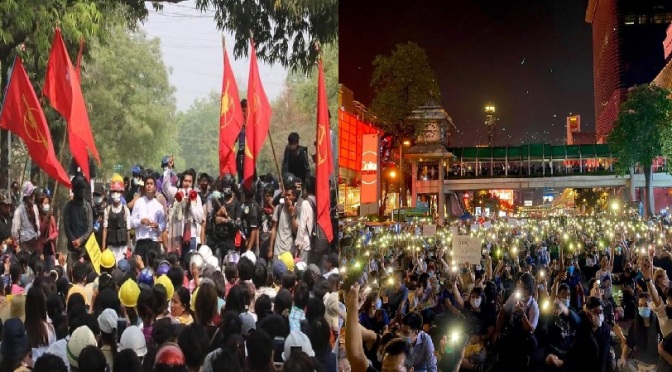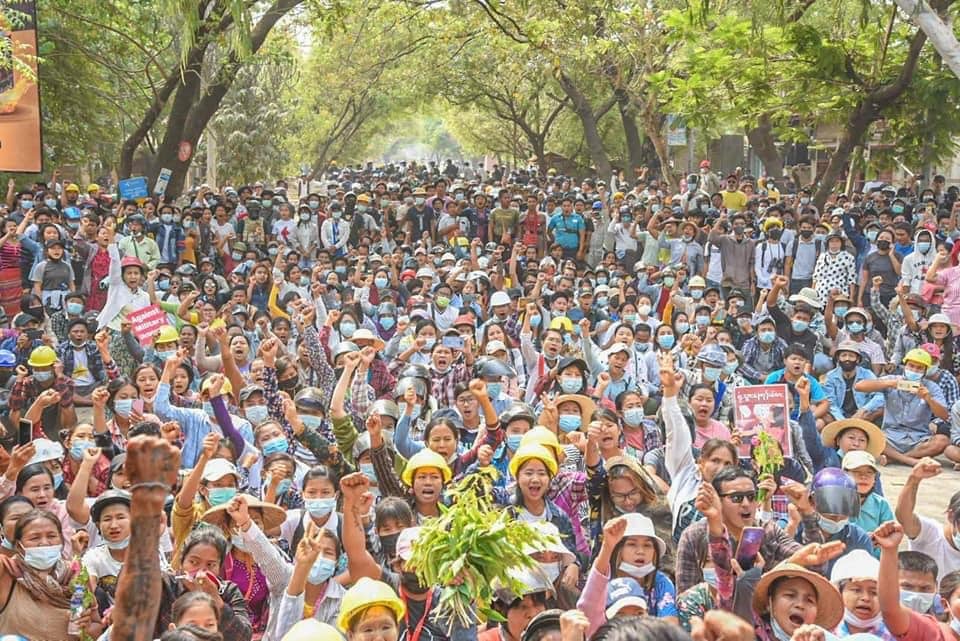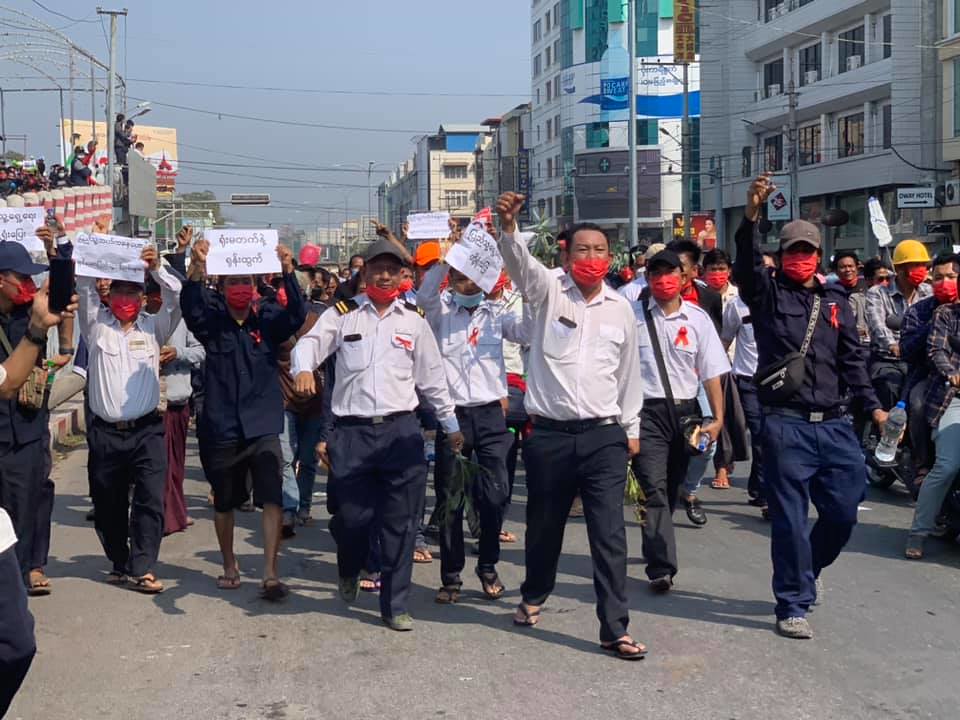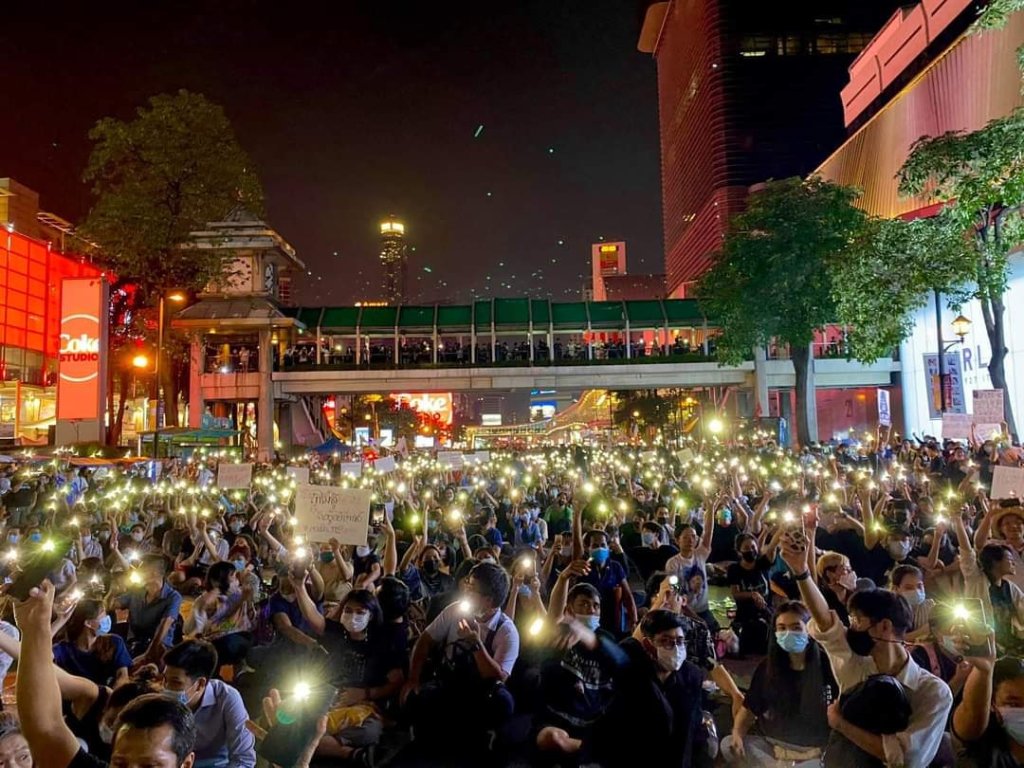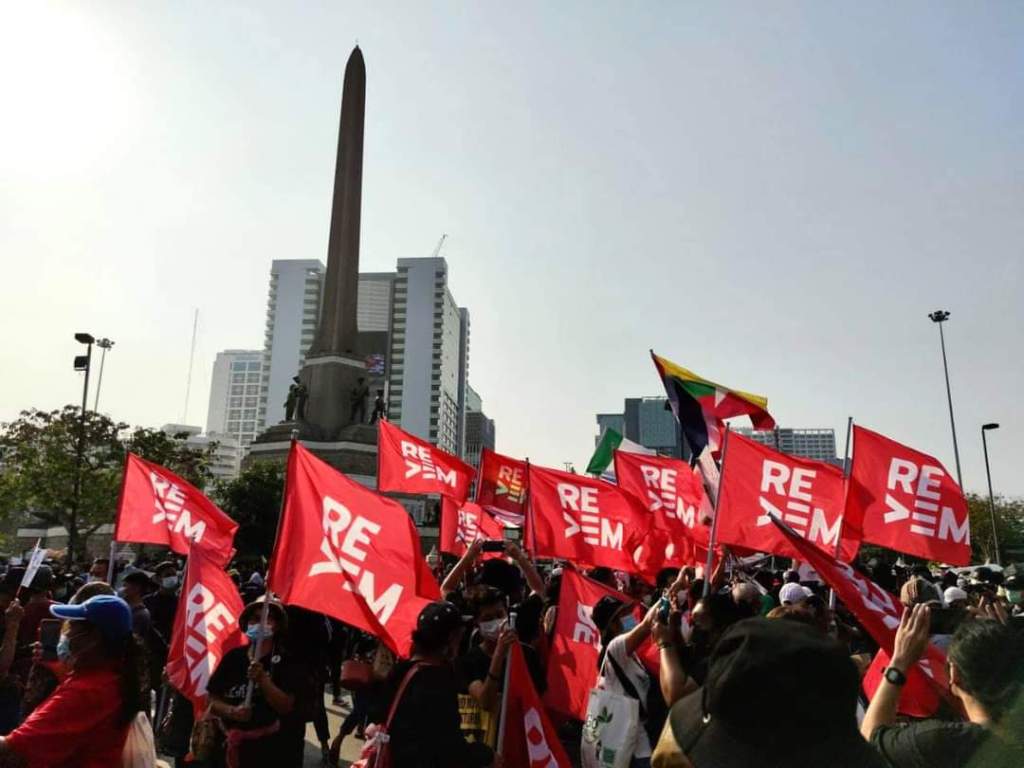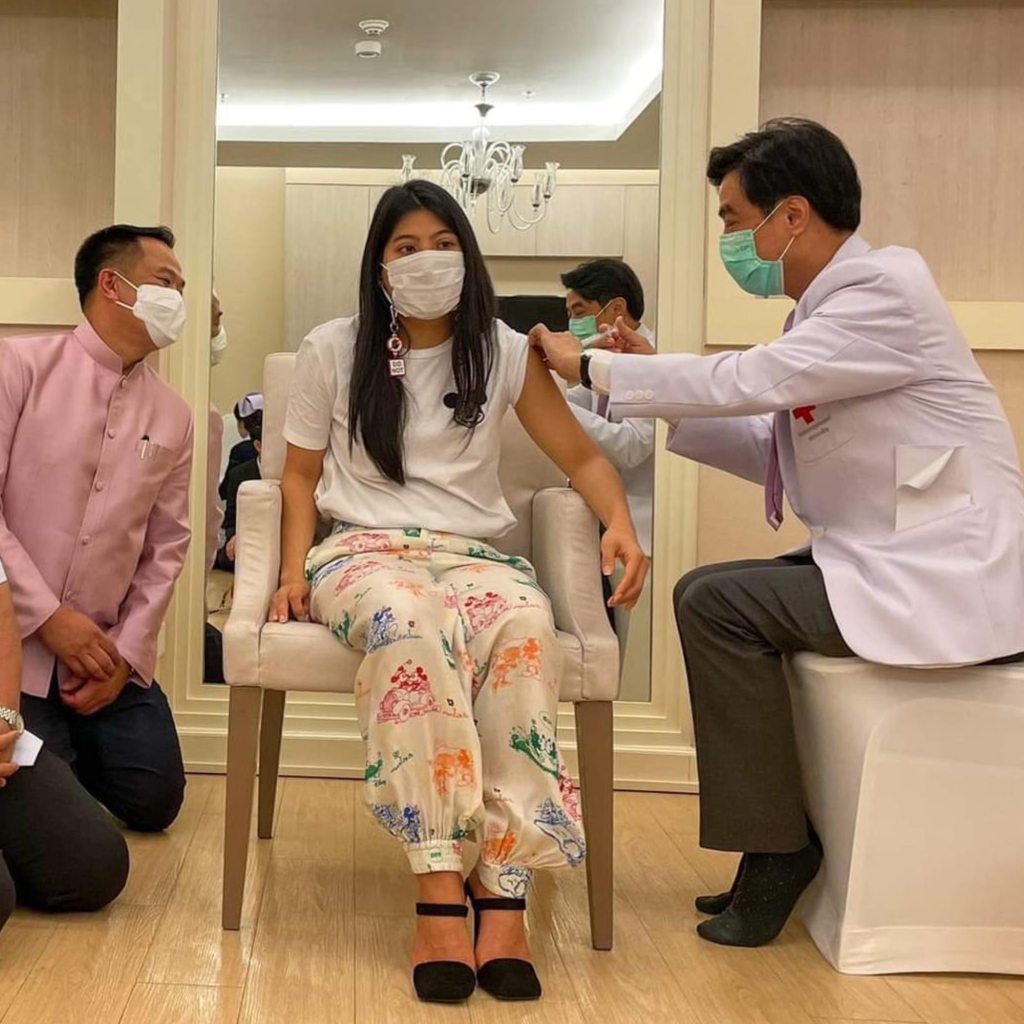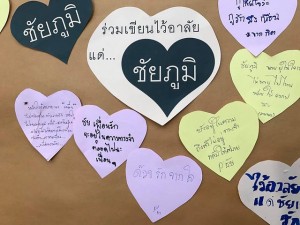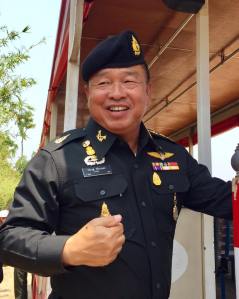The people of Burma are waging a heroic fight against the brutal Burmese military. Over three hundred unarmed protesters have so far been murdered in cold blood since the coup at the beginning of February. Yet, every day we see reports of more mass protests up and down the country. The general strike is having an impact on the economy, shaking the junta. In their anger at the strikers, the military have been threatening to throw people out of their workplace accommodation unless they return to work. Many have chosen to move out of their homes rather than submit to the junta.
Railway workers, hospital workers, civil servants, garment workers and bank workers have all joined the general strike. In stepping up the action, workers councils really need to be formed, as they were in the general strike of 1988. These workers councils could then start to organise the distribution of food and essential services to people, thus creating the beginnings of a functioning parallel government controlled by workers. Trade unionists in other countries could also make solidarity donations to help the workers of Myanmar.
In a challenge to the determination of those on strike, a recent article in the Financial Times argued that business leaders in Burma are saying that “protesters are playing a dangerous game with the Myanmar economy” This shows that strikes and civil disobedience are starting to have a real impact and worry the bosses. That is something to be celebrated. Working class strikes which cripple the economy are vital to overthrowing the military dictatorship and are potentially less dangerous than confronting the military and police on the streets. Yet, not surprisingly, bosses in Burma claim that these strikes and the many demonstrations that are occurring “could wipe out a decade of economic gain”. They are only worried by about their profits. In the past, these bosses were quite happy to go along with the military controlled sham democracy before the February coup and have turned a blind eye to gross human rights abuses throughout the country. Western governments were also happy to talk about “progress towards democracy” under the military constitution which allowed the military to hold real power even before the coup. The concerns for the wellbeing of ordinary people because of the strikes and protests expressed by bosses and even the UN are merely crocodile tears. Bosses and the so-called “international community” cannot be relied upon to liberate the people of Myanmar from military rule. And ASEAN certainly cannot be relied upon to do anything to stop the Burmese military. Most ASEAN countries are ruled by authoritarian governments.
In Thailand, prodemocracy activists look at events in Burma with a mixture of huge respect for the protesters and absolute horror at the actions of the military. Many Thais are really hoping for a victory against the Burmese junta which would invigorate the struggle in Thailand.
But important lessons from Burma are not being learnt by Thai activists. So far there have been no real attempts to build a strike movement against the Thai dictatorship and activists are stuck on a strategy of repeated demonstrations, which are smaller in size than those held in 2020. There have been sectarian comments against a group of more militant protesters calling themselves the REDEM movement. This movement takes internet polls from participants about where and how to organise protests. Their marches have been brutally attacked by police and royalist thugs. Some conservatives are criticising them for being “violent” when they defend themselves. But the violence of self-defence cannot in any way be equated to the violence of the Thai military junta, which uses crowd dispersing weapons, intimidation and kidnapping and the courts and prisons against those calling for freedom and democracy.
The junta has long sensed that the movement is stalling and this has given the military confidence to attack numerous protest leaders using the draconian lèse-majesté law and other undemocratic laws in the junta’s legal arsenal. If the democracy movement does not change tactics and increase pressure on the Thai junta, many leaders will be jailed for merely peacefully expressing themselves during protests. Some are being held in jail anyway after being denied bail.
The protesters are quite right in being critical of the odious King Wachiralongkorn, even if they exaggerate his powers in relation to the military. He has continued with his disgusting behaviour flaunting his wives in public and giving military ranks to his many women. This is going on even when he is engaged in a “charm offensive” to counter all the public criticism by touring the country and spending more time in Thailand instead of Germany.
Meanwhile, the total disregard by the military, for the welfare of Thai citizens in relation to the lack of Covid vaccinations, can be summed up by the news that one of the young princesses received her vaccination ahead of the elderly “because she has to meet lots of people while carrying out her duties”. In addition to this, the head of the army suggested that golf caddies on military golf courses be given the jab as a priority! The generals obviously feel that they can say any old rubbish because they are in power and no one can hold them accountable.
Giles Ji Ungpakorn
See also:
Wachiralongkorn’s mythical power https://bit.ly/2EOjsNL Rubber Ducks cannot defeat the military https://bit.ly/3p3LlnI
